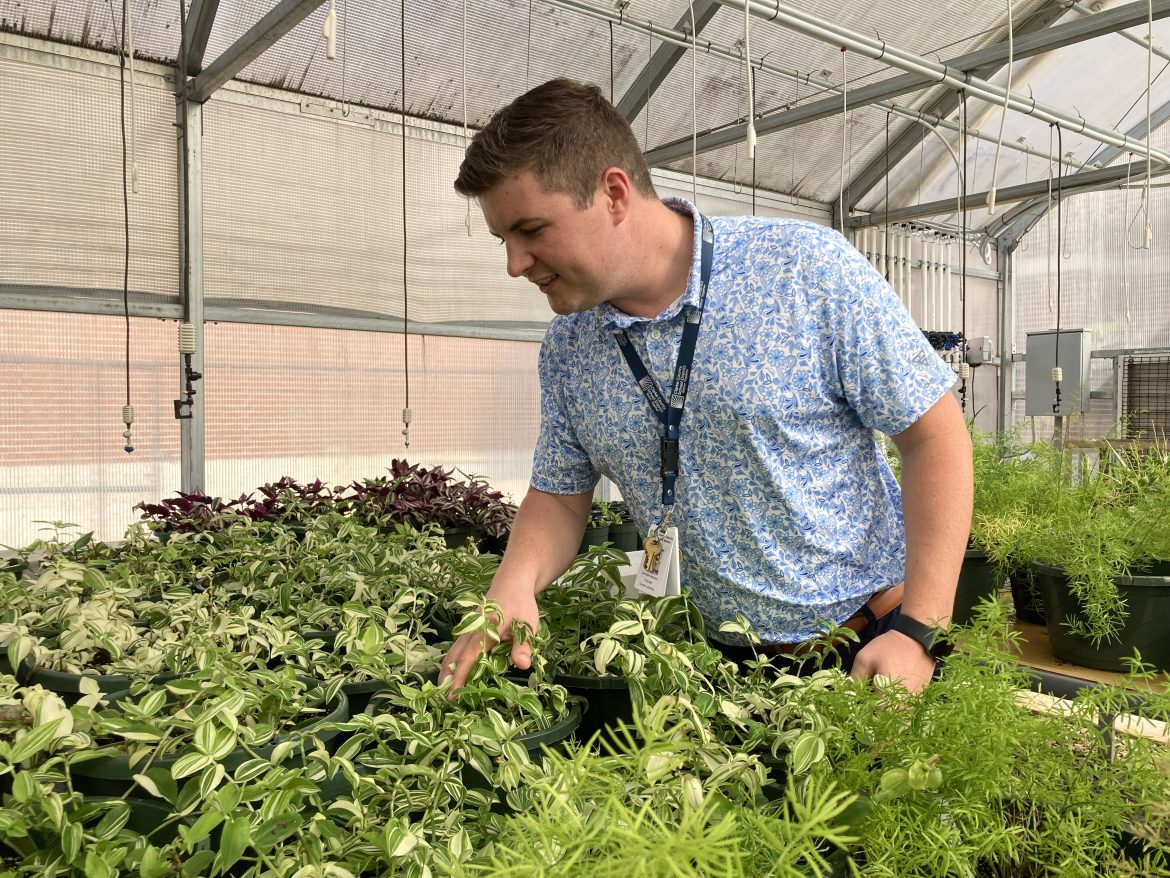Anthony Brooks, a Clarke Central High School Career, Technical and Agricultural department teacher and National FFA Organization co-adviser, works in the CCHS Greenhouse on Sept. 23. Advising FFA has been a valuable extension of the agriculture classes Brooks teaches because it offers students more opportunities to learn and grow. “Students can take what they’re learning in the classroom and apply it, hands-on, through (a) competitive style,” Brooks said. “(I also educate) them on what FFA is, and (try) to get them involved, so that way they can get those leadership skills and experiences.” Photo by Emlyn McKinney
The CCHS chapter of the National FFA Organization teaches and provides many opportunities outside of farming and livestock raising.
When a Clarke Central High School student hears “FFA,” they might think of the “Future Farmers of America” or a stereotypical rural farmer that raises livestock or grows crops.
While agriculture plays a big role in the organization, the official name was changed from “FFA” to the “National FFA Organization” in 1988 to better encompass the variety of pathways a member can follow.
“(There are) over 500 careers in the agricultural industry related to science, biotechnology, plants, animals, mechanics (and) aquaculture, just to name a few,” Anthony Brooks, a CCHS Career, Technical and Agricultural department teacher and FFA co-adviser, said. “(Students) can really be anything (they) want and still be involved in agriculture.”
“We just want to make (FFA) a comfortable space (for anyone) interested in what we do.”
— Juliana Hardman,
FFA Reporter and CCHS junior
FFA is an interactive extension of the agriculture classes CCHS provides, offering outside-of-school opportunities, from traveling to national conventions and events around Georgia to competing on the state level.
“Students can do hands-on things like competitions and (activities) related to agriculture. They can also do leadership events like public speaking (or working on) employment skills, where they have to create resumes, cover letters, apply and interview,” Brooks said.
While enrolling in an agriculture class automatically makes a student a member of the club, FFA Reporter Juliana Hardman, a junior, encourages anyone interested in FFA’s opportunities to join. The other FFA officers also want to strengthen the community among their members.
“It’d be nice if other (students) show up (to FFA meetings),” Hardman said. “That’s why we have all these flyers around school (and) share (posts) on social media to get the word out. We just want to make (FFA) a comfortable space (for anyone) interested in what we do.”
